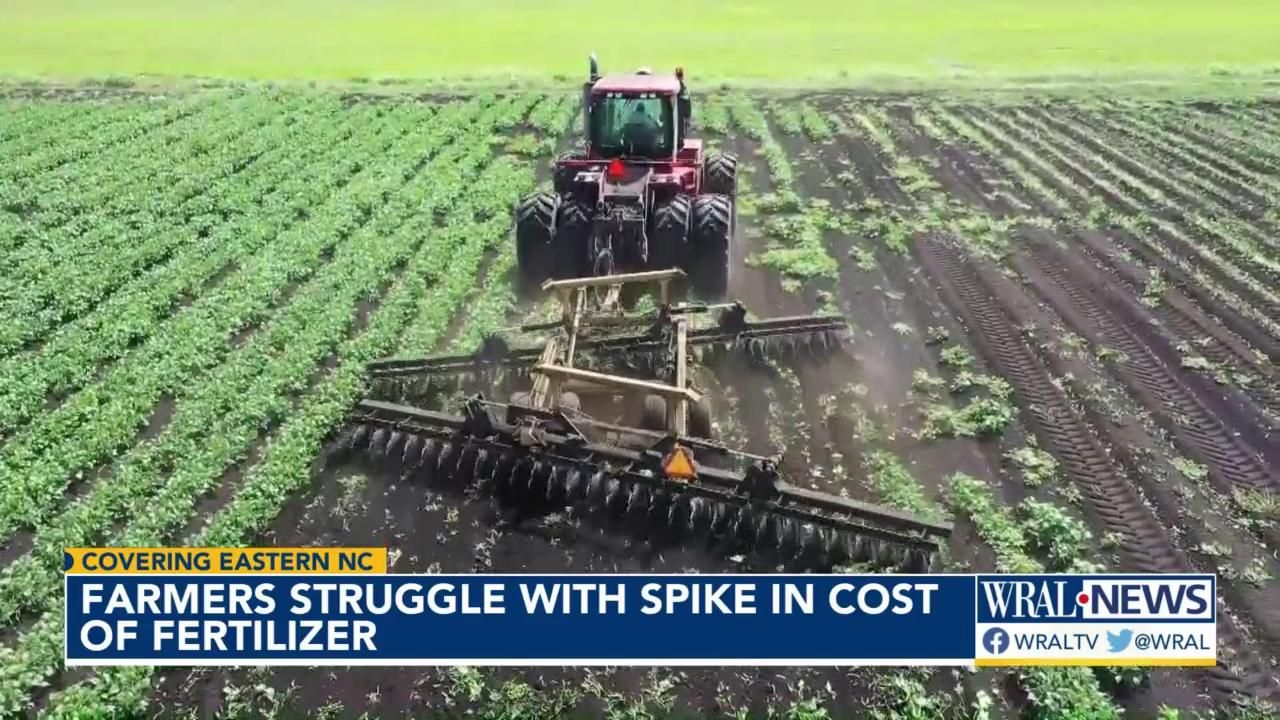NC farm bill tinkers with hog waste, water rules

A new farm bill slated for a vote this week at the statehouse changes North Carolina hog farm rules in ways that environmentalists say would be bad for the environment, allowing farmers to vent more methane gas from waste pits.
The bill also changes trout stream rules, strengthening those protections. And it could do away with significant wetland protections in the state, depending on the outcome of lawsuits pending in the federal courts system.
The measure boosts the penalty for spilling animal waste along state roadways, at least partly in response to a spate of hog carcass spills in Clinton. There’s controversy over a bill section that would require a week’s written notice before the state inspects veterinarian clinics.
And the bill would require schools across North Carolina to have muscadine grape juice on hand for students, a proposal that has become an annual General Assembly debate.
Senate Bill 582 is 19 pages of agriculture policy, touching on everything from honey production (it tinkers with tax calculations) to timber larceny (it broadens the definition). State lawmakers file a farm act nearly every year, and it often morphs repeatedly before becoming law. The measure was in the state Senate’s Agriculture, Energy and Environment Committee for the first time Tuesday, and it likely will be up for a vote in that committee Wednesday.
The Southern Environmental Law Center has targeted several sections of the bill. One tinkers with state hog farm regulations, changing a rule that requires that gases captured from waste lagoons be used to produce renewable energy, the environmental group said.
“With this change, venting and flaring – and harming the climate – is explicitly allowed,” the SELC said in a fact sheet on the bill. “Together, these changes negate any claimed climate benefit of digesters.”
Digesters are used to capture the methane gas hog waste produces, and state lawmakers changed regulations in recent years to make it easier for farmers to capture that gas and feed it to utility companies that burn it to produce electricity. The NC Pork Council says the changes are needed to allow temporary flaring at times and to let farmers plan for the future, installing equipment it takes to collect and sell methane before the pipes that are needed to transport the gas reach their farm.
Pork Council lobbyist Angie Maier said these systems cost hundreds of thousands of dollars to install and that farmers aren't going to spend that money, then not sell the gas.
"That would be nonsensical, and those making such claims know that," she said.
The SELC also sounded an alarm on the bill’s wetlands section, which would align state laws with federal rules currently tied up in a series of federal lawsuits. Those lawsuits threaten to rollback protections, something that farmers, builders and others say is sorely needed because the federal Waters of the United States rules, also known as “WOTUS,” have been far too broad and ambiguous.
The farm act would align North Carolina’s wetlands rules with whatever emerges from that legal process, according to Sen. Brent Jackson, a farmer by trade and sponsor of the annual farm bill.
Brooks Rainey Pearson, legislative counsel for the SELC, said that, depending on what the U.S. Supreme Court decides, “there are whole categories of wetlands that would no longer be protected … and those wetlands are integral to flood control.”
The SELC praised one part of the bill, though, calling a new 25-foot buffer requirement between farms and trout streams "a positive change that will protect trout waters."
The state’s Veterinary Medical Board complained about a bill section that would require written notice at least a week ahead of inspections at veterinary practice facilities. The veterinarian also would be able to reschedule that inspection under the bill.
Keith West, the board’s deputy director, told lawmakers that inspectors need to do unannounced inspections and that the board was “confused as to why” the bill proposes taking that away.
Jackson, R-Sampson, presented Senate Bill 582 in committee Tuesday but wasn’t immediately available afterward to answer outstanding WRAL News questions about the measure, or to respond to criticisms levied against the bill.
Another section of the bill explicitly adds animal waste, parts and byproducts to the state’s definition of litter and makes it a class 3 misdemeanor to spill these things and leave the scene. Clinton Mayor Lew Starling attended Tuesday’s meeting with large pictures of hog carcass spills in his city, saying it's happened 22 times and the city is struggling to track culprits down.
Starling said this section of the bill needs to be stronger than it is now, and Jackson indicated a willingness to revisit the language.
As for muscadine juice, some farmers have pushed for several years now to require schools to offer it, and this bill says public schools, community colleges and UNC campuses must “strive” to do so. After Jackson described this section of the bill for his colleagues, he told them to make sure and grab a juice sample provided by the industry on their way out of the committee meeting.
“If you like a little grape juice with a lot of sugar you’ll love it,” he said.








